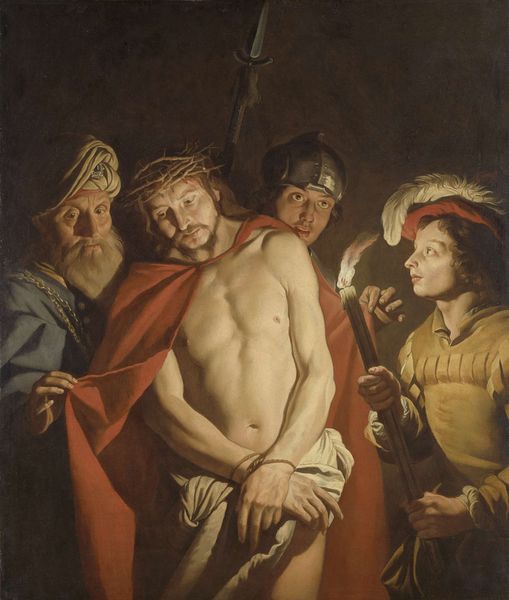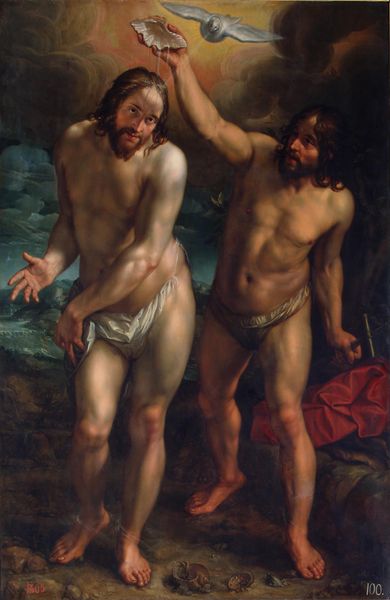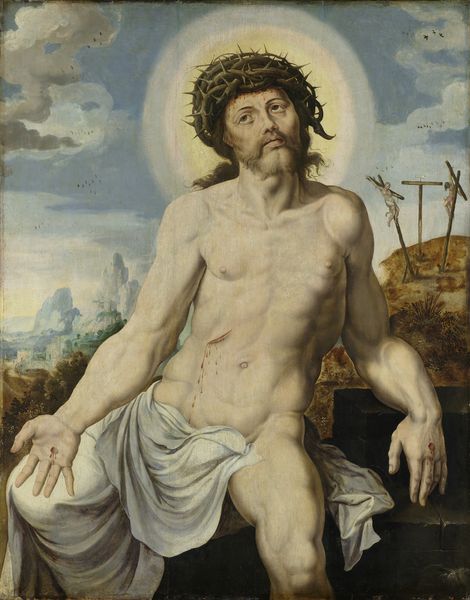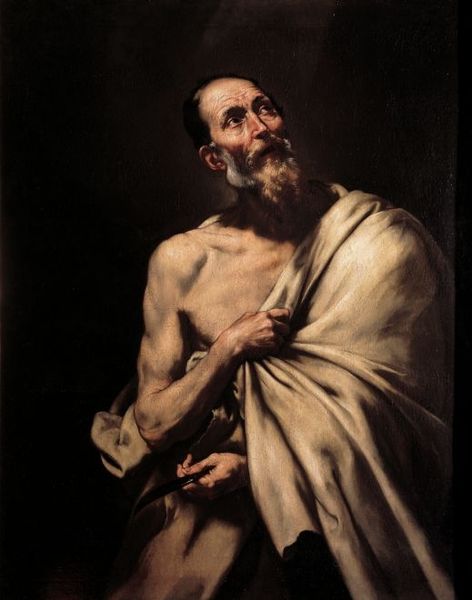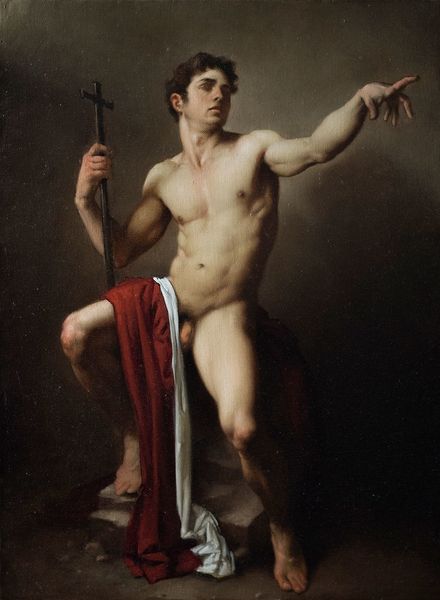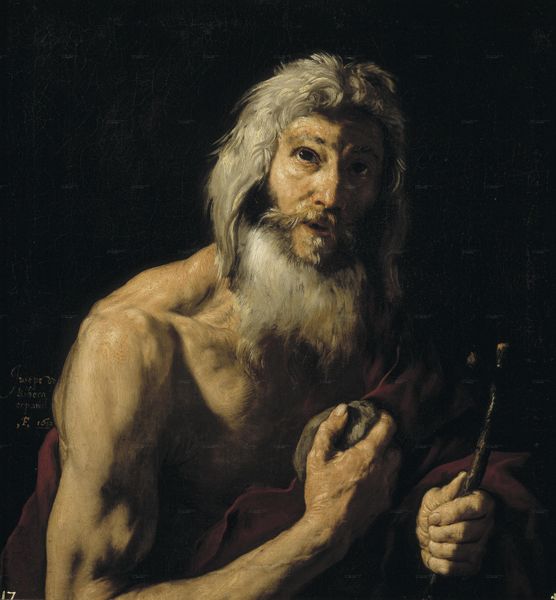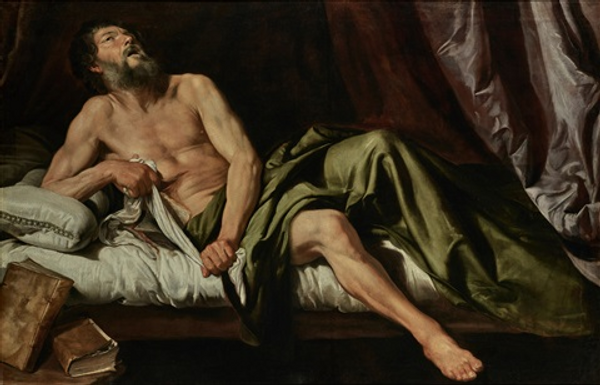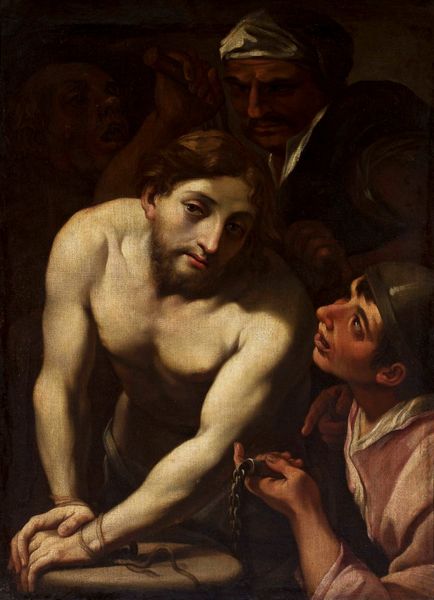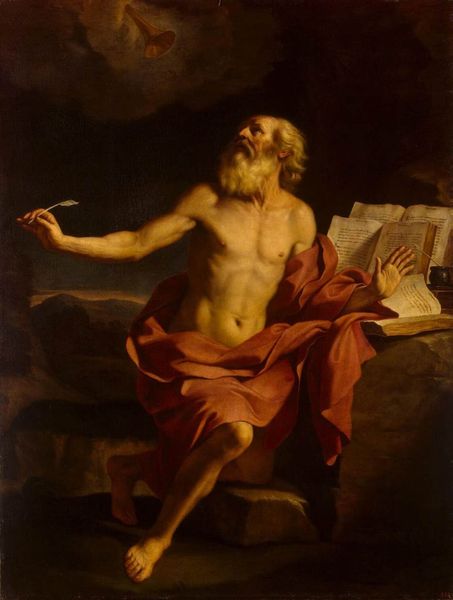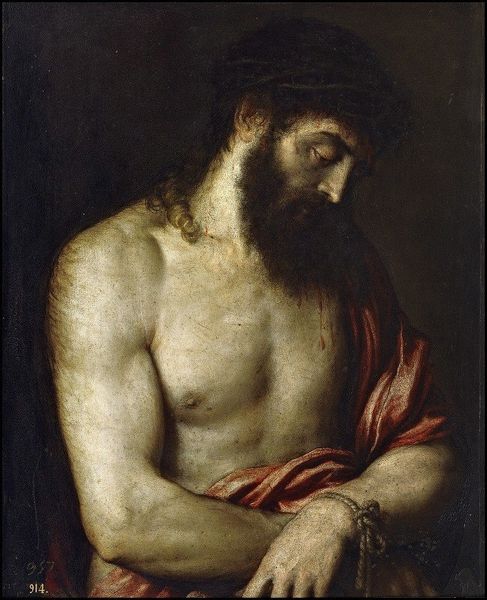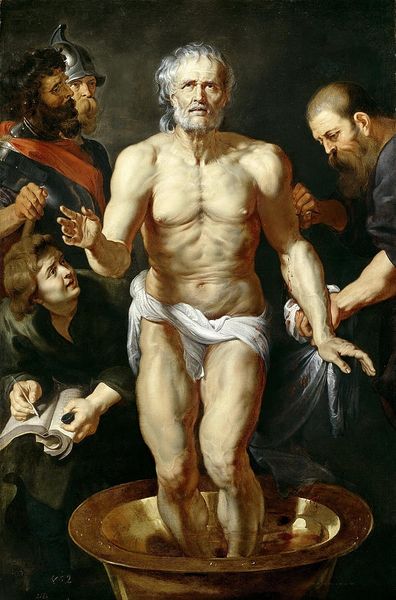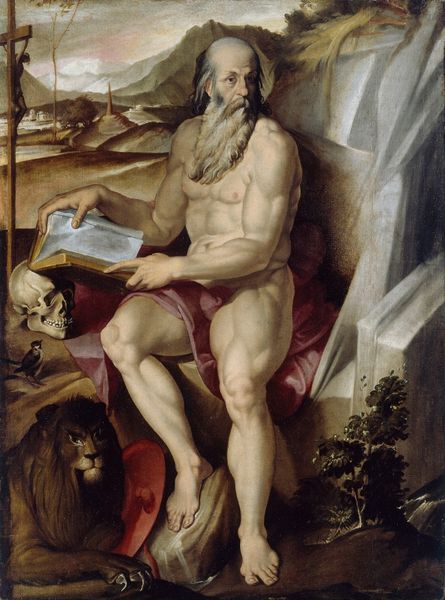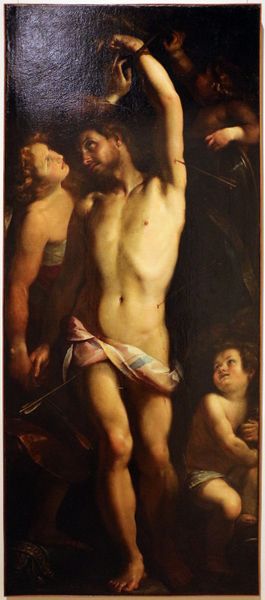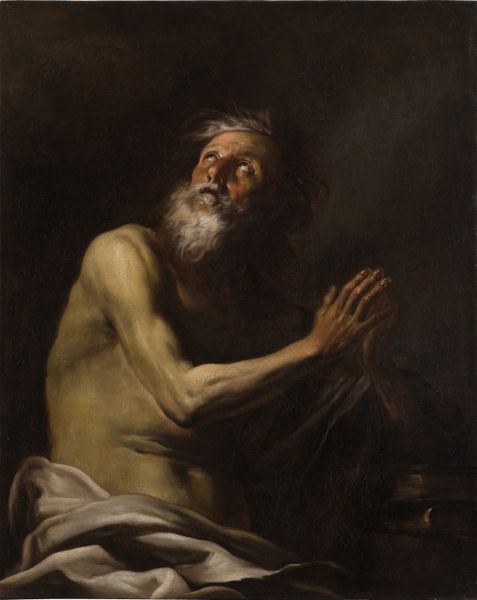
painting, oil-paint
#
portrait
#
baroque
#
painting
#
oil-paint
#
oil painting
#
portrait drawing
#
history-painting
#
nude
Dimensions: 107.3 x 97.2 cm
Copyright: Public domain
Editor: This is Hendrick Goltzius' "Man of Sorrows with a Chalice," painted in 1614, with oil paint. There's such raw emotion conveyed here, yet something about the composition feels carefully constructed. What elements stand out to you? Curator: I see a careful manipulation of materials and light to create a commodity meant to resonate with a specific patron. The very act of transforming mundane substances like oil and pigment into an image of spiritual suffering speaks to the complex interplay of labor, value, and faith in the early 17th century. Consider, how would the cost of the pigment, especially the blues and reds, have influenced the overall design? Editor: That's an interesting point, focusing on the cost of materials. I hadn’t considered how economic factors influenced the art itself. Do you see that influencing the emotional impact on viewers at the time? Curator: Absolutely! The quality of the lapis lazuli used to create ultramarine, or the rarity of a particular red earth, not only affected the price, but also shaped the perception of luxury and devotion connected to the work. The ability to afford such materials and techniques elevated both the artist and the patron. Think of the consumption tied to the artwork. What stories do those choices of colors and tools and supports tell us about Goltzius’ context? Editor: So, rather than just focusing on religious symbolism or the artistic skill, you're urging us to examine the tangible realities—the economics and social forces—behind its creation? It definitely provides a richer understanding of what’s presented before our eyes. Curator: Exactly. Art is not divorced from the world; it’s a product of specific material conditions and a window into the society that produced it. I now see that material analysis has shed new light on Goltzius’ craft for me. Editor: Me too! It has also altered how I consider what to ask of paintings, sculptures, and craft items.
Comments
No comments
Be the first to comment and join the conversation on the ultimate creative platform.
